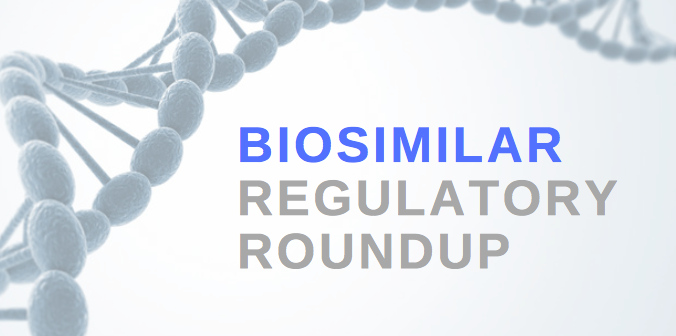- Bone Health
- Immunology
- Hematology
- Respiratory
- Dermatology
- Diabetes
- Gastroenterology
- Neurology
- Oncology
- Ophthalmology
- Rare Disease
- Rheumatology
Biosimilars Regulatory Roundup: September 2023
September was graced with several regulatory updates from around the world, including some European and Japanese approvals, as well as the FDA’s 2-day workshop on the current science behind clinical efficacy testing for biosimilars and streamlining biosimilar development.

September was graced with several regulatory updates from around the world, including some European and Japanese approvals, as well as the FDA’s 2-day workshop on the current science behind clinical efficacy testing for biosimilars and streamlining biosimilar development.
Approvals and Filing Updates
Throughout the month, there were several regulatory updates on biosimilars. The Therapeutic Good Administration approved Vegzelma, Celltrion’s bevacizumab biosimilar, for the Australian market for the treatment of several forms of cancer.
Additionally, the European Committee for Medicinal Products for Human Use issued positive opinions for 2 biosimilar products (aflibercept and natalizumab), both of which have since been approved by the European Commission.
The approval of Yesafili marked the first aflibercept biosimilar approval for the European Union, and the product will be used to treat ophthalmic conditions, such as age-related macular degeneration.
Tyruko marked the first approval for a natalizumab biosimilar and biosimilar to treat multiple sclerosis. The approval followed the FDA approval for the same product at the tail end of August.
Around the same time, Coherus Biosciences received a complete response letter from the FDA regarding its filing for its on-body pegfilgrastim biosimilar product referencing Neulasta Onpro. The letter cited issues with the inspection of a third-party manufacturing facility and did not mention any issues with the submitted clinical data package or the product itself.
Finally, Alvotech clinched Japanese approval for its ustekinumab biosimilar. AVT04 is the first ustekinumab biosimilar to be approved by the Japanese Ministry of Health, Labor and Welfare. It is also the first biosimilar to be approved under the commercial partnership between Alvotech and Fuji Pharma.
FDA Workshop on Streamlining Biosimilar Development
The FDA hosted a 2-day workshop to collect information on the role clinical efficacy testing plays in biosimilar regulatory decisions around the world and discuss ways to streamline biosimilar development.
The Center for Biosimilars® covered the event in a 3-part series summarizing the discussions from both days and offering commentary on the webinar from an industry perspective, the last of which was penned by Sarfaraz K. Niazi, PhD, an adjunct professor of biopharmaceutical Sciences at the College of Pharmacy at the University of Illinois at Chicago and industry expert.
Day 1 of the virtual event included presenters from international regulators and the World Health Organization. Each shared where their organization stands on the use of clinical efficacy testing in evaluating the safety and efficacy of biosimilars compared to their reference products and whether they are needed in the future.
Day 2 involved the developer perspective, where representatives from global biosimilar manufacturers shared their opinions on the use of these tests and how science has changed over time. The speakers claimed that valid concerns about the safety of biosimilars justified the use of clinical efficacy testing when biosimilars were new but new science shows that these tests do not provide additional meaningful evidence to already-required pharmacokinetic and pharmacodynamic analyses.
House Committee Hearing on PBM Practices
The House Committee on Oversight and Accountability held a second hearing on pharmacy benefit managers’ (PBMs’) potential anticompetitive practices, in which committee members investigated the role that PBMs play in rising health care premiums and drug prices.
The committee chairman, Rep James Comer (R, Kentucky), emphasized that PBMs’ pricing strategies are preventing payers from understanding how PBMs are making money at the expense of patients and taxpayers. Additionally, drug manufacturers pay rebates to PBMs, which can make it more difficult for generic and biosimilar drugs to get on formularies.
The hearing followed a prior investigation into PBM practices, and the committee said that more transparency and accountability is needed in the PBM industry.
Newsletter
Where clinical, regulatory, and economic perspectives converge—sign up for Center for Biosimilars® emails to get expert insights on emerging treatment paradigms, biosimilar policy, and real-world outcomes that shape patient care.
